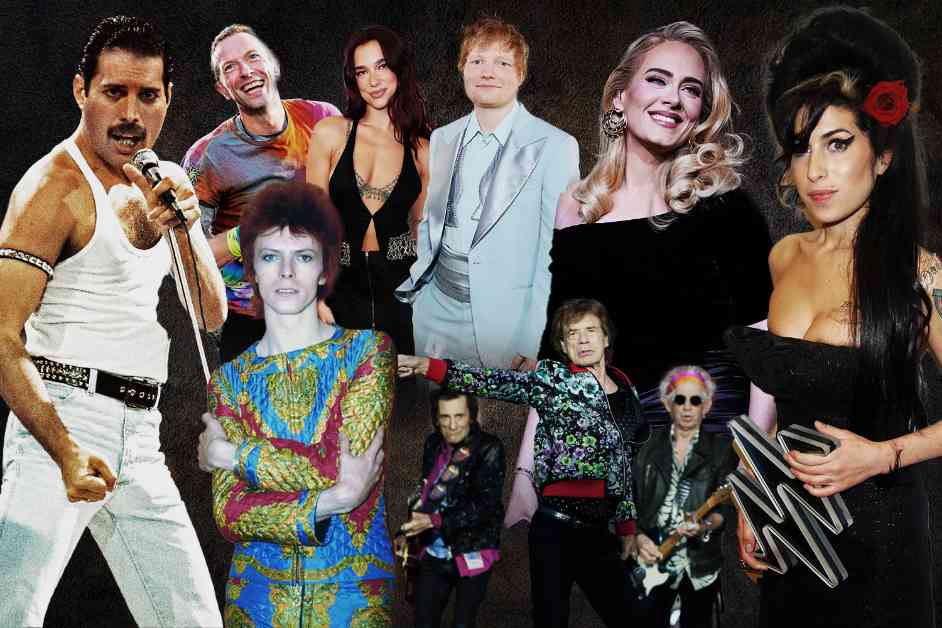Artificial Intelligence (AI) is more than just a buzzword; it’s a game-changer that has the potential to transform our lives in ways we never imagined. From generating music to influencing copyright laws, AI is a force to be reckoned with in the creative industry. As we navigate this brave new world, we must confront the existential crisis facing creators, particularly those in the music industry.
The Impact of AI on Creatives
Legendary musicians like Sir Paul McCartney and Roger Daltrey have raised concerns about the impact of AI on the music industry. With proposed changes to copyright laws looming on the horizon, the future of music creation hangs in the balance. These changes have prompted over a thousand industry signatories to submit a “silent album” titled Is This What We Want? to Downing Street, urging the government to ensure fair pay for the work that powers AI.
Kate Bush, a supporter of the Make It Fair campaign, encapsulated the fears of many artists when she questioned whether our voices would go unheard in the music of the future. Drawing parallels to Monet’s paintings of Victorian London, she painted a poignant picture of uncertainty and apprehension in the face of technological advancement. The looming specter of AI threatens to overshadow the creative process, leaving artists wondering if their art will be lost in the shuffle.
A Journey Through Music History
As we reflect on the rich tapestry of British music history, we are reminded of the trailblazers who paved the way for generations of artists. From The Beatles and The Rolling Stones in the Sixties to David Bowie and Elton John in the Seventies, each era brought forth a new wave of talent and innovation. The Eighties ushered in the era of synth pop, while the Nineties and Noughties saw the rise of Britpop and indie icons.
In recent years, solo powerhouses like Amy Winehouse, Adele, and Ed Sheeran have captivated audiences around the world with their raw talent and emotional depth. However, the specter of AI looms large, threatening to supplant human creativity with computer-generated output. Artists like Nick Cave have expressed horror at AI-generated songs that mimic their style but lack the soul and authenticity of true human expression.
The Human Element in Music
At the heart of the debate surrounding AI and creativity is the question of empathy. Can AI truly replicate the depth of emotion and connection that human artists bring to their work? Roger Daltrey argues that music is a language of empathy, a uniquely human experience that cannot be replicated by algorithms. Joan Armatrading emphasizes the importance of safeguarding the rights of creators through robust copyright laws, ensuring that artists retain control over their intellectual property.
Bjorn Ulvaeus of ABBA offers a pragmatic perspective on AI, acknowledging its potential to enhance creativity while cautioning against its misuse. He highlights the economic and cultural impact of copyright laws, emphasizing the need for balanced regulation to protect creators’ rights. Paul McCartney, a vocal advocate for artists’ rights, underscores the importance of ensuring that creators are compensated fairly for their work in an increasingly digitized world.
Looking to the Future
As we stand at the crossroads of technological advancement and artistic expression, we must grapple with the ethical implications of AI in the creative industry. While AI presents exciting opportunities for innovation and collaboration, it also poses significant challenges for artists seeking to protect their work and livelihoods. As British music continues to evolve and adapt to the digital age, it’s essential that we prioritize the rights and well-being of creators in a rapidly changing landscape.
The future of music hangs in the balance, caught between the promise of technological progress and the preservation of human creativity. As we navigate this uncharted territory, it’s crucial that we strike a balance between innovation and integrity, ensuring that artists have a seat at the table in shaping the future of music. The time has come to protect and empower creatives in the face of unprecedented challenges and opportunities.













